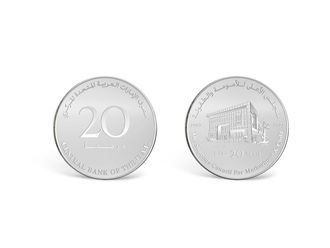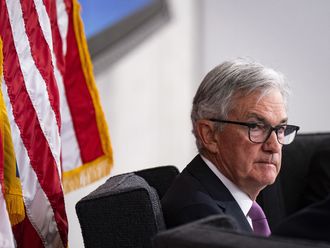Istanbul: Turkey's central bank said yesterday that it is raising banks' short-term lira reserve requirements and lowering long-term ratios to extend maturities in the banking system in an effort to curb hot money inflows.
The moves, signalled by the central bank after it cut its policy rate by 50 basis points on Thursday evening, will reduce market liquidity by 7.6 billion lira (Dh18 billion), the bank said.
Easy-money policies in the developed world have swamped emerging economies with capital searching for higher returns, driving up their currencies.
The resulting inflows have inflated Turkey's current account deficit, seen as the major risk to an otherwise booming economy. The deficit is financed to a large degree by short-term portfolio funds making Turkey vulnerable to any external shocks.
Boom
A stronger lira has exacerbated the current account deficit, fuelling a domestic demand boom while Turkish exporters suffer.
Turkey joins countries like Brazil and other Latin American and Asian peers which have seen themselves forced to impose capital controls or taxes to prevent their rising currencies strangling exports.
The lira, however, firmed yesterday as Thursday's rate cut had been expected. It strengthened to 1.5190 against the dollar in early interbank trade from a close of 1.5230.
"Given the central bank has moved in line with expectations on the rate move, we would expect more strengthening of the lira, especially as the hike in the reserve requirements will withdraw a substantial 7.6 billion lira," said C.A. Cheuvreux economist Simon Quijano-Evans.
The yield on the benchmark August 8, 2012 bond rose to 7.32 per cent yesterday, from 7.28 per cent on Thursday, while Istanbul's main share index rose 1.4 per cent.
The central bank raised the lira reserve requirement ratio to 8 per cent on deposits of up to one-month maturity, from a previous 6 per cent requirement for all lira deposits.
The revisions go into effect on January 7, 2011.
It also set the ratio at 7 per cent for deposits of up to six months maturity, 6 per cent for up to one-year maturity and 5 per cent for one year and longer.
Foreign currencies
The reserve requirement for foreign currencies remained at 11 per cent.
But foreign currency liquidity will be reduced by $200 million (Dh734 million), as the new reserve requirements will also have an impact on funding of foreign currency repos.
"It is assessed that in this way the maturity mismatch will be reduced by extending maturities in the banking system, hence contributing to financial stability," the central bank statement said.
It said repo deals would be included in reserve requirements, excluding those with the central bank and in the interbank market.
8%
central bank raised lira reserve requirement ratio
6%
previous requirement for lira deposits
$200m
amount that foreign currency will be reduced












